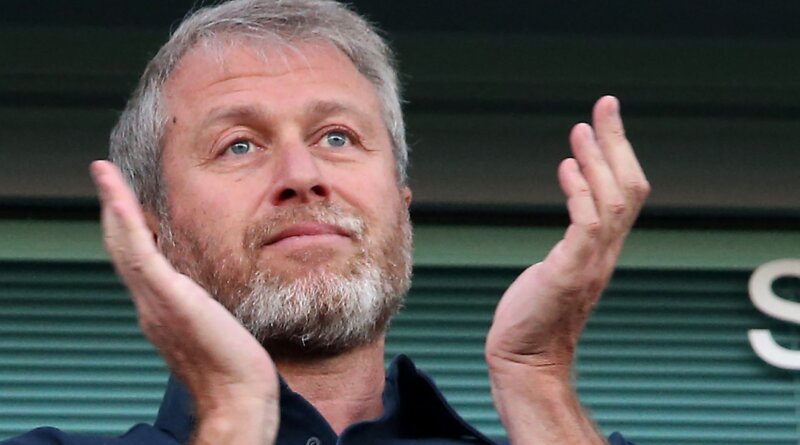Roman Abramovich Loses EU Sanctions Appeal After Three Years
Roman Abramovich sanctions have once again been upheld, as the former Chelsea owner’s latest legal effort to overturn European Union restrictions was dismissed by the bloc’s highest court. The Russian-Israeli billionaire, whose ties to Russian President Vladimir Putin led to his sanctioning in 2022, remains subject to significant limitations on his assets and movements within the EU.
Roman Abramovich Sanctions Remain in Force
Roman Abramovich sanctions were originally imposed by the European Union in March 2022 in response to Russia’s full-scale invasion of Ukraine. EU officials cited Abramovich’s close relationship with Vladimir Putin and his perceived support of the Russian government as key reasons for the measures. These sanctions included asset freezes, travel bans, and restrictions on conducting business within EU territories.
This latest legal challenge marks Abramovich’s third attempt to have the sanctions lifted. The European Court of Justice, the EU’s highest court, ruled that the restrictions remained “necessary and appropriate” given the ongoing situation in Ukraine and Abramovich’s connections to the Russian leadership. The court emphasized that the EU has broad discretion in imposing such measures in the interest of international security and solidarity with Ukraine.
Abramovich’s Long Legal Fight
Since the imposition of the sanctions, Abramovich has mounted a sustained legal campaign to challenge their validity. He has argued that the EU failed to present concrete evidence of his direct involvement in the war or in supporting the Russian government’s military activities. Despite these claims, EU officials have maintained that his “privileged relationship” with Russian authorities and the significant wealth he amassed through Russian state connections justify the restrictive measures.
The court acknowledged Abramovich’s arguments but ultimately found that the EU Council had provided sufficient justification for the sanctions. The ruling stated that the measures were proportionate and consistent with EU objectives to pressure those with links to the Russian government during the ongoing conflict.
Impact on Chelsea Sale and Ongoing Disputes
One of the most notable consequences of the Roman Abramovich sanctions was their direct impact on the sale of Chelsea Football Club. Abramovich was forced to sell the Premier League team in 2022, with UK and EU authorities ensuring that he did not profit from the transaction. The proceeds from the Chelsea sale, estimated at over £2.5 billion, remain frozen and under dispute, with ongoing negotiations about their eventual allocation, likely toward humanitarian efforts for Ukraine.
The sanctions also limit Abramovich’s ability to travel, access his properties in EU countries, or conduct business within the bloc. These restrictions remain in place indefinitely, pending any significant changes in the geopolitical landscape or further successful legal appeals—a prospect that now seems increasingly unlikely.
Sanctions and Football: A Broader Context
The Roman Abramovich sanctions serve as a high-profile example of how global political tensions can have ripple effects across the world of sport. While Abramovich’s era at Chelsea was marked by unprecedented investment and success, his forced departure and the ongoing disputes over the club’s sale have left a lasting impact on European football governance and ownership policies.
Other clubs and owners with links to politically sensitive regimes have faced increased scrutiny, with governing bodies and regulators embracing stricter due diligence processes to safeguard the integrity of the sport.
What Lies Ahead for Abramovich?
With the European Court of Justice’s ruling, Abramovich’s options for overturning his sanctions are now extremely limited. His legal team may seek to challenge specific aspects of the decision, but the EU’s stance on Russia-related restrictions appears resolute. Unless there is a significant shift in the situation in Ukraine or diplomatic relations, the sanctions are likely to remain in place for the foreseeable future.
For Chelsea fans and observers of European football, the legacy of the Roman Abramovich sanctions is a reminder of how off-field developments can dramatically reshape the sport’s landscape. The ongoing dispute over the Chelsea sale proceeds will continue to be a closely watched issue, with potential implications for future club sales involving sanctioned individuals.
Opinion: Sanctions Send a Strong Message
In my view, the continued enforcement of Roman Abramovich sanctions underscores the EU’s commitment to holding influential figures accountable for their associations and actions, especially when global conflict is at stake. While the situation is undoubtedly complex—impacting not just Abramovich, but also the football community and charitable beneficiaries—the court’s decision reflects the broader need to uphold international security and justice. For more updates and in-depth analysis, visit our for more news.
Your global gateway to nonstop football coverage:
News Goal
Share this content:

